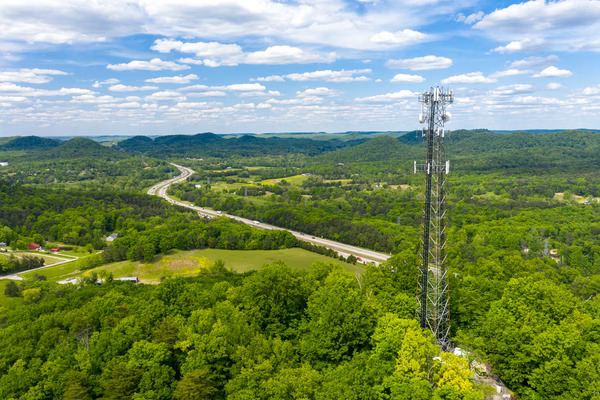
The Infrastructure Bill Has $65 Billion for Broadband Deployment. Now What?
Reliable, high-speed internet is critical. Broadband powers business efficiencies, connects local communities, provides students with educational resources and opportunities, and much more.
While the benefits of broadband connectivity abound, not everyone is benefiting. In fact, 14.5 million Americans lack internet access in communities across the country. But there’s hope. It is called the Broadband Equity, Access, and Deployment Program.
Fill me in: The Infrastructure Investment and Jobs Act (IIJA) provided a historic investment in our nation’s infrastructure, including $65 billion for broadband deployment and affordability. The majority of this investment is for the Broadband Equity, Access, and Deployment (BEAD) Program, which will be distributed to states and territories to finance broadband deployment by the National Telecommunications and Information Administration (NTIA). Next month, NTIA is slated to begin implementing this program.
These crucial investments will help connect all Americans and ensure that unserved populations can reap the benefits of a 21st century digital economy.
Numbers to know:
- 14.5 million: According to the Federal Communications Commission (FCC), 14.5 million Americans lack access to broadband.
- $42.45 billion: The BEAD Program totals $42.45 billion, the largest component of the IIJA’s investments in broadband deployment and the single largest federal investment in deployment in history.
- 100/20 Mbps: Minimum requirements of 100 Mbps download speeds and 20 Mbps upload speeds are required by the infrastructure law to ensure Americans can effectively access the most innovative products services in the digital marketplace.
Our take: The U.S. Chamber filed comments to NTIA outlining how the BEAD Program should be crafted to ensure its success. Here are our top four recommendations:
- Use federal funds efficiently: The Program should prioritize unserved areas first so that all Americans can benefit from an internet connection. This means that NTIA should coordinate with other federal agencies like the FCC and the Departments of Agriculture and Treasury to prevent duplicative investments.
- Take a technology-neutral approach: There are many different types of technological solutions to provide an internet connection that fits the needs of different communities, including fiber, wireless, fixed wireless, and satellite. NTIA must maintain a technology-neutral approach and recognize the wide range of innovative solutions that the private sector offers.
- Ensure a uniform approach across all 50 states: States will take a leading role in broadband deployment under the infrastructure law. NTIA should work to prevent a confusing patchwork of rules across states, particularly for quality-of-service requirements. NTIA should also coordinate with the FCC to ensure quality of service requirements and the low-cost option align to limit confusion and contradictory requirements.
- Reduce other barriers to deployment: Outside of federal investments in broadband, NTIA and the administration should reduce other barriers to broadband deployment including onerous permitting requirements, supply chain challenges, and workforce shortages. Also, policymakers should avoid exacerbating these challenges through burdensome regulatory requirements and impractical domestic content restrictions requirements.
What’s next:
- Program implementation: NTIA is required to outline the parameters of the BEAD Program by Mid-May 2022. This will be translated into a Notice of Funding Opportunity to let states know how to participate in the program.
- Revised FCC maps: The bulk of BEAD Program funds will be distributed based on updated maps that will provide more precise details on who lacks access to broadband. The FCC estimates that these maps will be finalized by Fall 2022.
The bottom line: The pieces are in place to connect all Americans to a prosperous digital future. Now it’s up to policymakers to partner with American businesses to make it happen.
The Weekly Download
Subscribe to receive a weekly roundup of the Chamber Technology Engagement Center (C_TEC) and relevant U.S. Chamber advocacy and events.
The Weekly Download will keep you updated on emerging tech issues including privacy, telecommunications, artificial intelligence, transportation, and government digital transformation.
